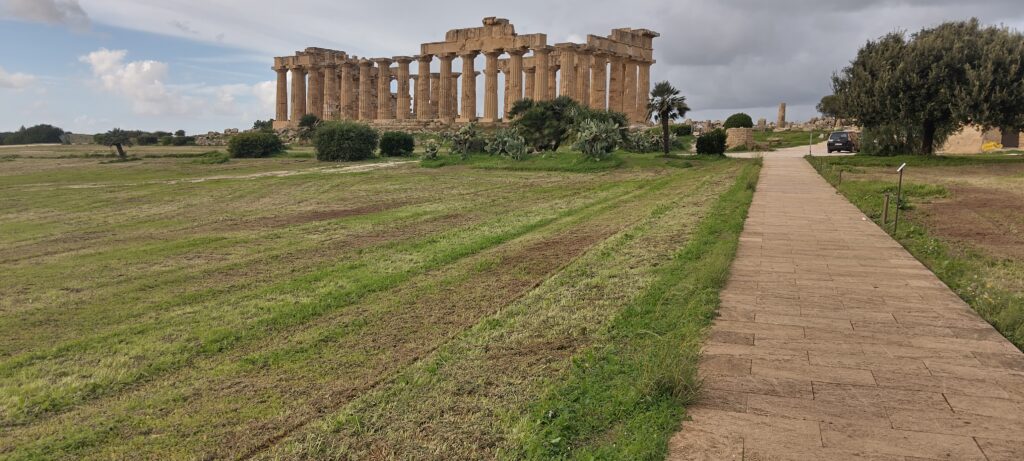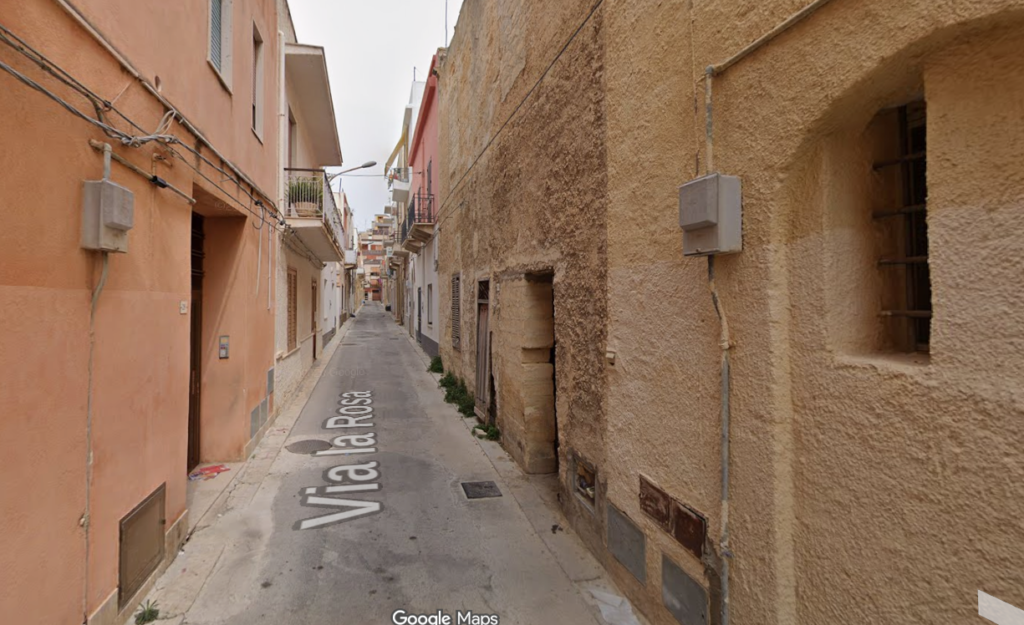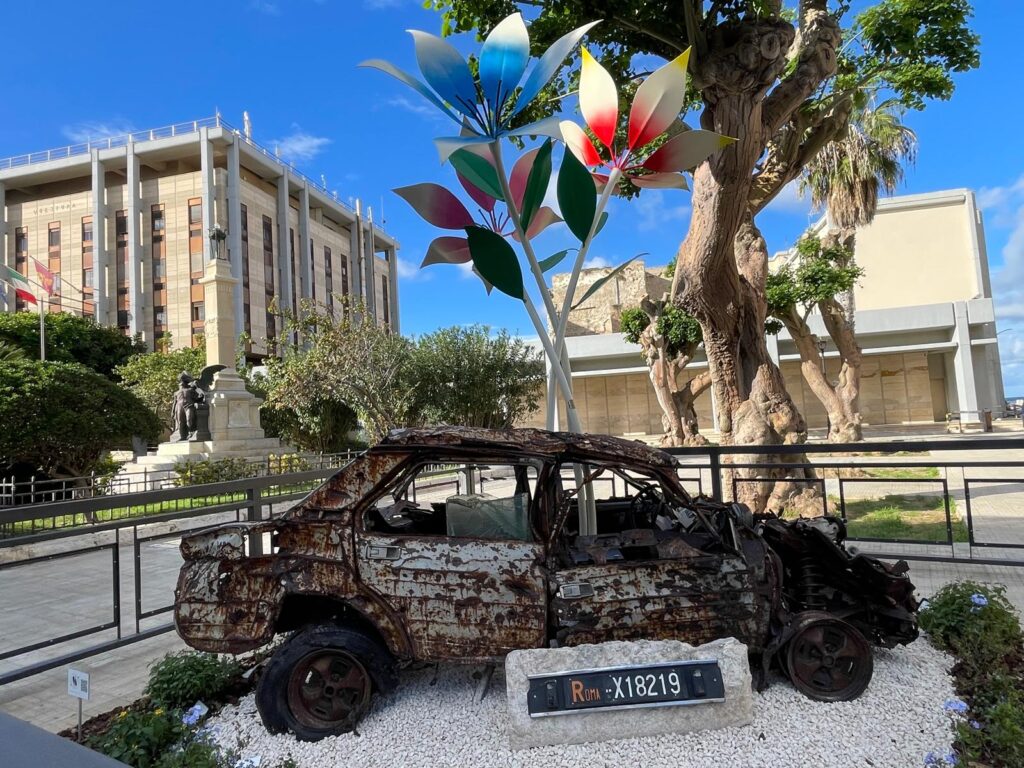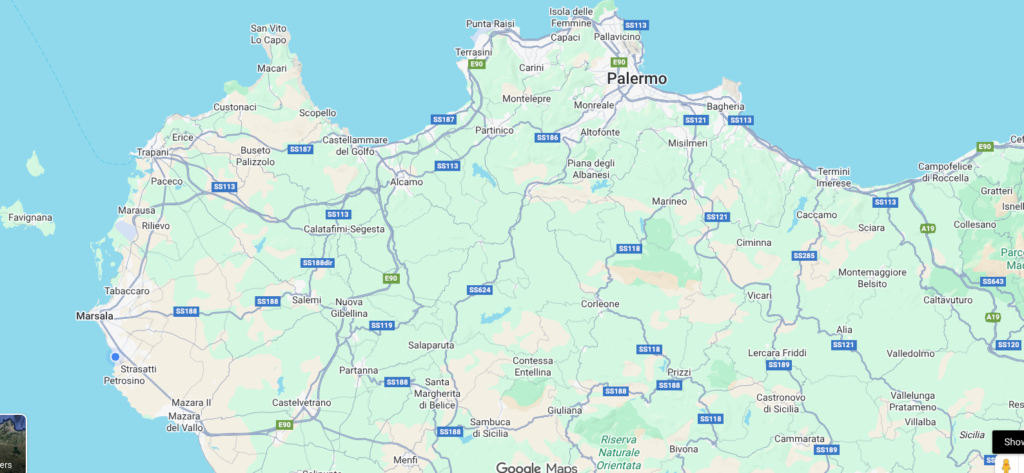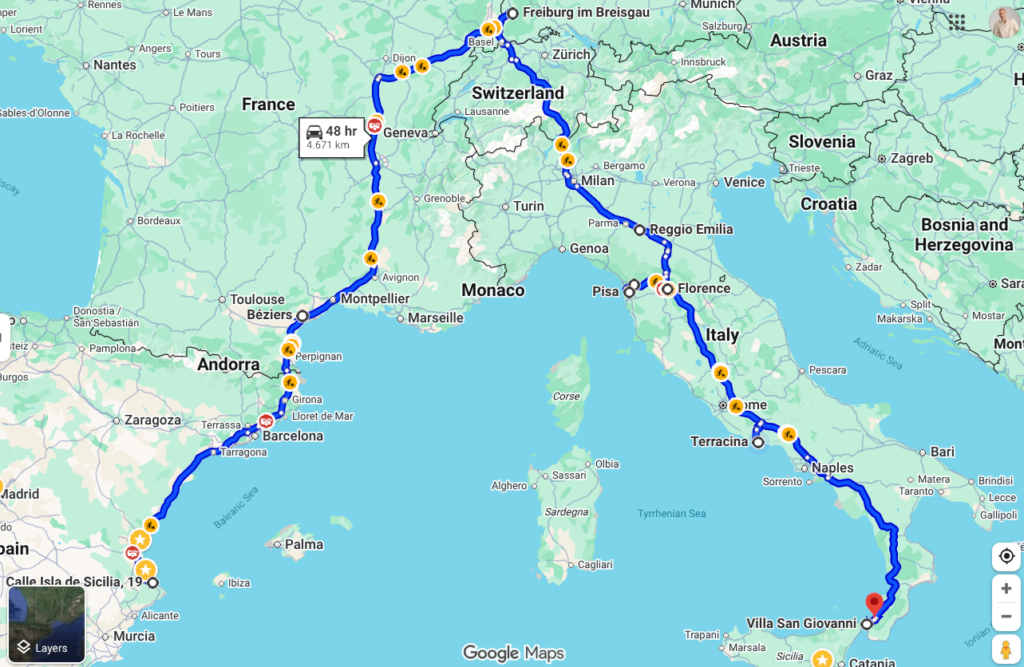Been a little while since I have blogged about our time here in Sicily. So an update is maybe due.
We left Marsala a week ago and travelled east right across the middle of the island to Catania via Enna en route. Enna is some 900 metres (3000 ft) above sea level and was the meeting point of the three divisions laid down in the time when Sicily was under Arabic rule.

A little impregnable!
The past week has been in Catania the second biggest city in Sicily. It boasts the oldest university (1434) being established almost 400 years prior to the university in the capital (Palermo). For me the stand out part in the history is that of the Fasci Siciliani dei Lavoratori (Sicilian workers league – fasci not to be confused with fascist – it is Italian for ‘bundle’) that had its origin in the city.
Between 1888-90 there were a series of failed harvests and thus famine in Sicily. After the unification of Italy wealth was removed from Sicily and the Italian government compounded the hardship through not giving any help in response to the famine. What has been termed as ‘the first and most influential modern social movement’ (by historian Eric Hobsbawn) was formed by necessity – beginning in Catania (May 1891) of the Fasci Siciliani dei Lavoratori. The movement spread throughout Sicily in the next few years. Totally eclectic but had a significant influence in forming the Italian Socialist party the following year in Genoa (1892).
In the movement there was a strong presence and influence of women – a journalist based in Rome who began to cover the movement commented that ‘girls as young as 15 years old were on the frontlines of the movement’.
Here is a quote from Mackay in The Invention of Sicily:
Arguably, the most radical manifestation of the Fasci took root in the Piana degli Albanesi just outside of Palermo, where those involved set up a series of agricultural cooperatives and worked them collectively, sharing all profits evenly among the community. This action was more that just a protest: it represented a new model of economic production that was entirely at odds with Italy’s modern capitalism… ultimately the Fasci faltered not because of their internal weaknesses, but because the Italian state recognised the danger they represented to the ‘normal’ functioning of the economy.
By the end of 1893 the Fasci had 300,000 members. By the beginning of 1894 central government sent in armed forces resulting in multiple killings and arrests. A year after the central committee was put on trial and condemned with prison sentences. The result was ‘victory for democracy and public order’ – so said the then prime minister of Italy!!!
The response to this movement also strengthened the Mafia who defended the landowners and thus found greater space to express themselves.
We left Catania this morning. Not been easy to get a handle on the place but I think this is because some of its ‘first-gifting’ and the artistic side has been suppressed. In our travels we are seeking to build a picture of ‘who are you, Sicily’ so as we can pray and call for her place in what we are looking for with the renewal of Europe in the context of so many parts of culture (including the demise of christendom) that are falling away.
On to Palermo this morning – a 3 hour drive, and this is an island! We are staying right by the main train station so it should be nice and earthy!! (Trains and earth???)
This morning I picked up this YouTube video that follows the Agnelli family. They own or control Ferrari, Fiat, Jeep, Chrysler, Maserati, and Juventus football team, as well as owning Italy’s largest newspaper and manage $200 billion in assets.
Their power base is in the north – Turin (of shroud fame), a city that has a strong link to Jupiter (Zeus for the Greeks), and certainly one that I was informed some 30 years ago is seen as the occult centre. What I find interesting is that Turin has been described as the political and intellectual centre for the Risorgimento (Garibaldi’s movement) and was the first capital of the new kingdom of Italy post Garibaldi’s conquest of the two Sicilies. The Garibaldi connection again – it seems to be truly a turning point in Italy – obviously as unification resulted – but also a turning point for Sicily.
Loads more to say… but hopefully we are beginning to see the layers. If not at least we are occupied!

